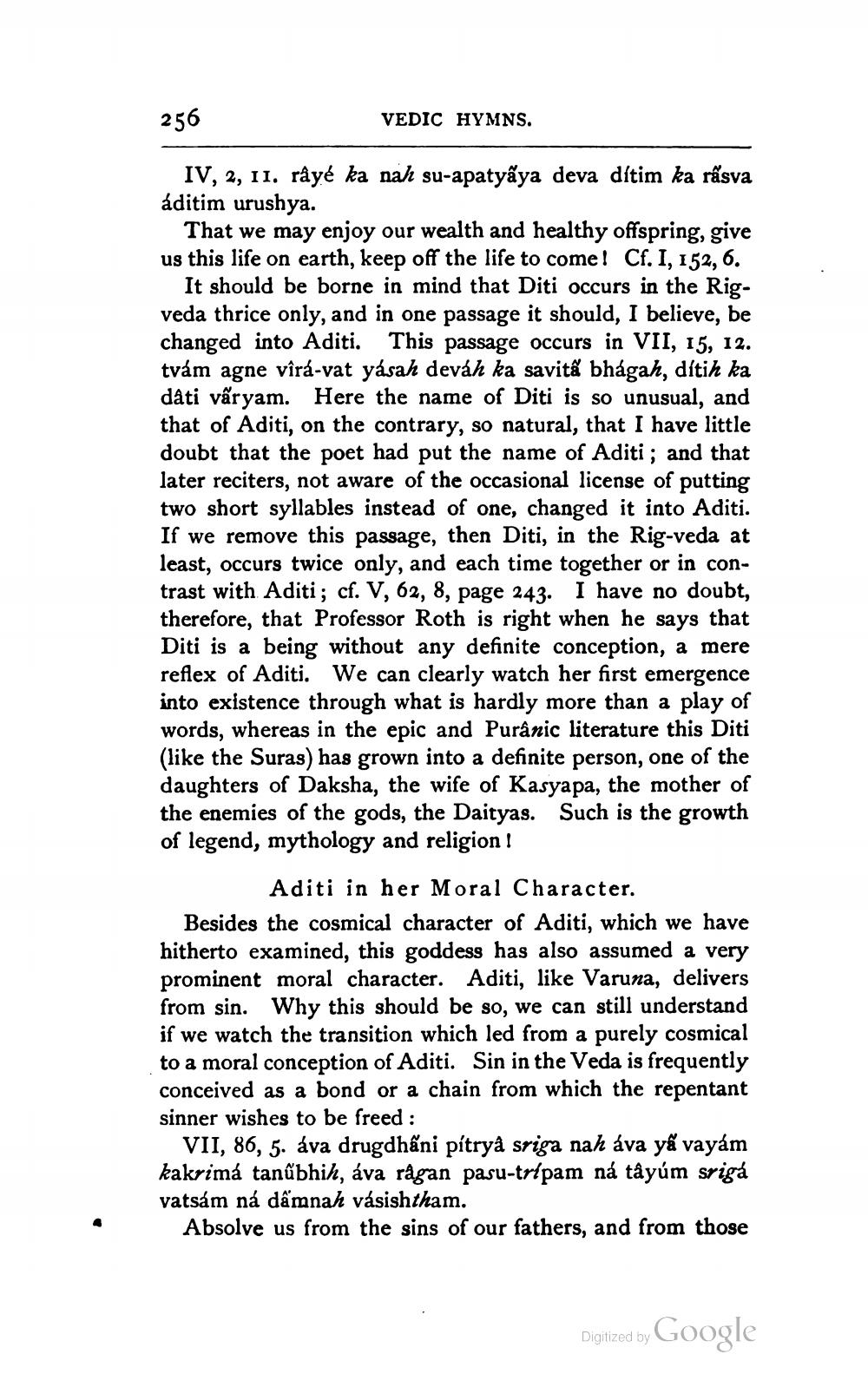________________
256
VEDIC HYMNS.
IV, 2, 11. râyé ka nah su-apatyaya deva dítim ka rasva áditim urushya.
That we may enjoy our wealth and healthy offspring, give us this life on earth, keep off the life to come! Cf. I, 152, 6.
It should be borne in mind that Diti occurs in the Rigveda thrice only, and in one passage it should, I believe, be changed into Aditi. This passage occurs in VII, 15, 12. tvám agne vîrá-vat yásah deváh ka savita bhágah, dítih ka dati vấryam. Here the name of Diti is so unusual, and that of Aditi, on the contrary, so natural, that I have little doubt that the poet had put the name of Aditi ; and that later reciters, not aware of the occasional license of putting two short syllables instead of one, changed it into Aditi. If we remove this passage, then Diti, in the Rig-veda at least, occurs twice only, and each time together or in contrast with Aditi; cf. V, 62, 8, page 243. I have no doubt, therefore, that Professor Roth is right when he says that Diti is a being without any definite conception, a mere reflex of Aditi. We can clearly watch her first emergence into existence through what is hardly more than a play of words, whereas in the epic and Purânic literature this Diti (like the Suras) has grown into a definite person, one of the daughters of Daksha, the wife of Kasyapa, the mother of the enemies of the gods, the Daityas. Such is the growth of legend, mythology and religion !
Aditi in her Moral Character. Besides the cosmical character of Aditi, which we have hitherto examined, this goddess has also assumed a very prominent moral character. Aditi, like Varuna, delivers from sin. Why this should be so, we can still understand if we watch the transition which led from a purely cosmical to a moral conception of Aditi. Sin in the Veda is frequently conceived as a bond or a chain from which the repentant sinner wishes to be freed :
VII, 86, 5. áva drugdhấni pítryå sriga nah áva yã vayám kakrima tanűbhih, áva rågan pasu-tripam ná tâyúm sriga vatsám ná dámnah vasishtham.
Absolve us from the sins of our fathers, and from those
Digitized by
Digized by Google




